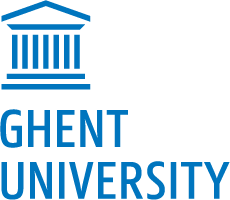
UGent: Mechanics of Materials and Structures (MMS)
University of Ghent, Faculty of Engineering and Architecture, Department of Materials, Textiles and Chemical Engineering
General expertise of the research group
The research group Mechanics of Materials and Structures (MMS) is part of the Department of Materials, Textiles and Chemical Engineering (MaTCh). This group has more than 40 years of experience in the design, simulation, testing and inspection of fiber-reinforced composites. In the last decade, also expertise in additive manufactured materials has been developed. The group has a long-term tradition in numerical simulation and design of composites, in static, impact, fatigue and creep loading conditions. A wide range of experimental test facilities is available for mechanical characterization of materials, and also for Non-destructive Testing (NDT) of materials and components.
Specific hydrogen- related expertise & research topics
- Simulation and design of filament wound composite pressure vessels for hydrogen storage; investigated topics relate to the vessel design, the effect of fatigue damage during filling/depleting cycles, the instability of the liner (buckling, cracking), the interaction with the metallic inserts, etc
- Analytical theories for stress calculation of filament wound composite hydrogen tanks and pipes, to improve on the currently used netting theory for tank design
- Non-destructive Testing (NDT) techniques are developed for inspection of these thick-walled composites. ultrasound, thermography and shearography techniques are investigated to detect manufacturing defects or in-service damage in the tank, and locate and size the defects; acoustic Emission is explored for Structural Health Monitoring of hydrogen tanks in service
- Micro-mechanical tests to characterize the fibre/matrix interface in composites; those tests could also be used for ageing tests in the presence of hydrogen
- Design and simulation of fuel cell stacks in terms of stiffness, strength and durability (impact/crash, bolting/gaskets)
- Topology optimization codes for material choice in thermo-mechanical loading scenarios
- Simulation of performance and damage development in flexible transport pipes (typically for offshore applications)
Available equipment/tools
- Wide range of lab equipment for static/dynamic/fatigue testing of composite materials and components
- Variety of Non-destructive Testing (NDT) techniques for inspection of parts and components
- Finite Element software for mechanical design and simulation (relevant for hydrogen storage tanks, fuel cell engineering, flexible pipelines)
- In-house Topology Optimization codes for multi-material design in thermo-mechanical loading conditions
- Micro-mechanical testing facilities for ageing of fibre/matrix interfaces
Main relevant publications
- Hondekyn, M., Ali, N. and Van Paepegem, W. (2024). Closed-form analytical model for the cylinder region of thick-walled composite pressure vessels for hydrogen storage. International Journal of Hydrogen Energy 87 (2024) 457–468
Open access : https://doi.org/10.1016/j.ijhydene.2024.08.447 - Finazzi, D., Seychal, G., Raquez, J.-M., Robert, G., De Clerck, K., Daelemans, L. and Van Paepegem, W. (2024). Study of the temperature-humidity equivalence and the time-temperature superposition principle in the finite-strain response of polyamide-6 and short glass fibre-reinforced polyamide-6. Accepted for Polymer Testing.
Contact persons
Prof. Dr. Ir. Wim Van Paepegem
Professor Mechanics of Materials and Structures
wim.vanpaepegem@ugent.be
University of Ghent | Department of Materials, Textiles and Chemical Engineering
B-9052 Gent


